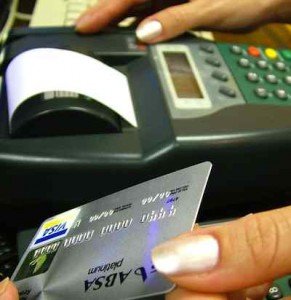There are consumers and financial gurus that believe that credit cards are evil, and that they should never be used, lest they lead you into the bondage associated with debt.
I don’t think credit cards are inherently evil.
Can they lead to debt? Sure they can – if they are used improperly. The reality is that credit cards are financial tools. They provide convenience and access to funds. They come with protections that you don’t see with some of the other forms of payment (including debit cards).
When used properly, credit cards can actually help you reach your financial goals. If you want to take full advantage of credit cards, here are 6 rules for savvy use.
1. Understand Your Cash Flow
 Before you begin using credit cards, understand your cash flow. Know how your money moves through your personal economy. Understand how much money you have coming in, and when it comes in. Also, keep track of where that money is going (and when).
Before you begin using credit cards, understand your cash flow. Know how your money moves through your personal economy. Understand how much money you have coming in, and when it comes in. Also, keep track of where that money is going (and when).
In order to avoid the pitfalls of credit card use, you need to understand your finances, and how they fit into your credit card use.
2. Sign Up for Rewards Credit Cards
While there are conveniences that come with credit card use, and perks (like rental care insurance) that come with most credit cards, you aren’t maximizing them unless you sign up for a rewards program.
Choose rewards credit cards that allow you to earn points for free travel or other perks. Even better, sign up for cash back cards that actually give you cash when you use them. When you swipe, you have the potential to come out ahead.
3. Make Sure You Already Have the Money
Before you charge a purchase, make sure you already have the money. This is where understanding your cash flow comes in. Incorporate your credit card into your regular spending plan. Use it to pay for purchases that you plan to make anyway. Gas, groceries, and utilities are excellent choices for rewards card use. If you already have the spending in your budget, things are less likely to get out of control.
4. Never Carry a Balance
Pay off your credit card balance each month. If you carry a balance, you will be charged interest, since it is a loan. However, if you pay off what you owe every single month, you won’t pay interest. This is important because your rewards program earnings can’t compete with what you pay in interest. If you earn $30 in rewards one month, but end up paying $55 in interest, you have lose $25, rather than gaining.
Smart credit card use requires that your balance be paid off every month.
5. Don’t Max Out Your Credit Cards
More on Credit Cards
Try to avoid maxing out your credit card. Even if you pay off your balance each month, maxing out your card can be detrimental to your credit report. Depending on when your creditor reports to the credit bureaus, it might look as though you carry a high balance – even if you pay it off.
If you don’t pay attention and go over your limit, you might be charged a fee. It’s best to avoid getting too close to your limit, since you don’t want to take that chance. Try to plan your spending so that you don’t exceed 50% or 60% capacity on your cards. It’s even better if you can keep it to 30%.
6. Read the Fine Print
Finally, read the fine print associated with your credit card. This includes understanding whether you are charged fees for certain actions, such as late payments, and whether or not you are subject to a penalty APR.
You also need to read the fine print associated with your rewards program. Some programs charge redemption fees for rewards. There might be special requirements if you want to qualify for certain rewards, or certain types of insurance and other perks. Understand the fine print associated with your card so that you don’t end up with unpleasant surprises. This includes reading updates to your credit card agreement, since creditors can change the terms.
Miranda is freelance journalist. She specializes in topics related to money, especially personal finance, small business, and investing. You can read more of my writing at Planting Money Seeds.

